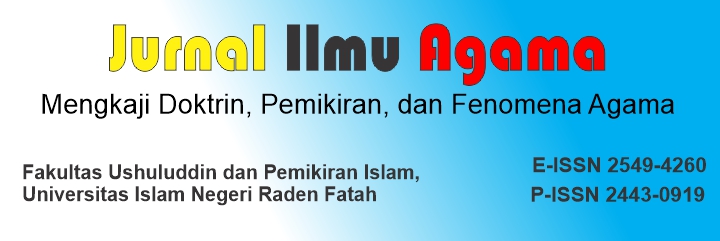Humiliation as a Consequence of Human Offenses (A Study of the Interpretation of the Verses of Azabulkhizyi from the Perspective of Tafsir al-Maraghi)
Main Article Content
Abstract
Every human being has consequences for what they have done. Especially because of their lack of faith and trust in themselves. Allah has warned his servants about the consequences of doing things that Allah has forbidden. One of them is punishment. Although there have been several essays on doom, the author tries to convey how to avoid doom. The word doom means God's punishment that is rewarded to humans who violate religious prohibitions. doom also means all kinds of suffering (misery). There are many assumptions about the cruelty of God about the punishment given but not realizing the mistakes that have been made. This study examines the interpretation of the word doom in Tafsir al-Maraghi by Sheikh Ahmad Mustafa al-Maraghi. This study focuses on two main things: first, the interpretation of Shaykh Ahmad Mustafa al-Maraghi on the verses related to punishment. Second, how efforts to avoid doom in Tafsir al-Maraghi. The research method used is library research with a thematic approach using the Qur'an and Tafsir al-Maraghi as the main source. The results and conclusions show that al-Maraghi's interpretation of the verses of azabulkhizyi is interpreted as an act that causes Allah's punishment to befall humans. These actions include disobeying and fighting Allah and His Messenger, showing hypocrisy, spreading false teachings, and doing vain deeds. This finding indicates that azabulkhizyi tells how the consequences of human beings about what they have violated from Allah's provisions.
Article Details

This work is licensed under a Creative Commons Attribution 4.0 International License.
Authors who publish with this journal agree to the following terms:
- Authors retain copyright and grant the journal right of first publication with the work simultaneously licensed under a Creative Commons Attribution 4.0 International License that allows others to share the work with an acknowledgement of the work's authorship and initial publication in this journal.
- Authors are able to enter into separate, additional contractual arrangements for the non-exclusive distribution of the journal's published version of the work (e.g., post it to an institutional repository or publish it in a book), with an acknowledgement of its initial publication in this journal.
- Authors are permitted and encouraged to post their work online (e.g., in institutional repositories or on their website) prior to and during the submission process, as it can lead to productive exchanges, as well as earlier and greater citation of published work.
How to Cite
References
Mira Fauziah, “Janji Dan Ancaman Sebagai Metode Dakwah Alquran,” Jurnal Ilmiah Al-Mu’ashirah 15, no. 1 (2018): 12, https://doi.org/10.22373/jim.v15i1.5454.
Amiruddin Amiruddin, "Memahami Otentisitas Konsep Tuhan: Kajian Konsep Emanasi, Ontologi Dan Kosmologi Filosof Muslim", KACA (Karunia Cahaya Allah): Jurnal Dialogis Ilmu Ushuluddin 9, no. 1 (2019): 67–88.
Agusman Agusman, Samsuddin Agusman,, Strategi Dakwah Nabi Musa The Da’wah Strategy of Prophet Musa Samsuddin”, DIRASAH: Jurnal Kajian Islam 1, no. 2 (2024): 115–31, https://litera-academica.com/ojs/dirasah/index.
Miftakul Mu’minin, Mugiyono, and Nurhayat Muhammad Arpah, “Pesan Moral Dalam Kisah Kesabaran Nabi Ayub as", Al-Misykah: Jurnal Kajian Al-Quran Dan Tafsir 1, no. 1 (2020): 55–65.
Ahmad Mustafa Al-Maraghi, Tafsir Al-Maraghi, ed. Bahrun Abu Bakar, (Semarang, Thoha Putra, 1993).
M. Khoirul Hadi, “Karakteristik Tafsir Al-Marāghī Dan Penafsirannya Tentang Akal,” HUNAFA: Jurnal Studia Islamika 11, no. 1 (2014): 153, https://doi.org/10.24239/jsi.v11i1.345.153-172.
Salsa Bila Fitri, “Kemudahan dalam Beragama Islam(Studi Tematik Lafadz Ad-Din dalan Tafsir Al-Maraghi)”, Al Karima: Jurnal Studi Ilmu Al Quran dan Tafsir 5, no. 1 (2021): 25–37.
Hasan Zaini, “Bencana Menurut Perspektif Al-Qur’an”, el-Hekam: Jurnal Studi Keislaman 4, no. 1 (2019).
Muhammad Muhyiddin Ar-Rabi’y, et al., “Konteks Azab Dalam Al-Qur’an (Analisis Semantik Term Kata ‘Azhim, Alim, Muhin Dalam Qs. Ali-Imran: 176-178)”, Sabda: Jurnal Sastra Dan Bahasa 2, no. 2 (2023), 54–90.
Alizaky Alizaky, “Bencana Alam Perspektif Al-Qur’an Analisis Kisah Nabi Nuh, Nabi Hud dan Nabi Luth (Kajian Tematik)”, Al-Misykah: Jurnal Studi Al-qur’an dan Tafsir 1, no. 1 (2020).
Mira Fauziah, “Janji dan Ancaman Sebagai Metode Dakwah Alquran”, Jurnal Ilmiah Al-Mu'ashirah 15, no. 1 (2018).
Syarifah Choirunnisa, “Studi Penafsiran Lafadz Quwwah dalam Tafsir Al-Maraghi”, Al Karima : Jurnal Studi Ilmu Al Quran dan Tafsir 4, no. 1 (2020).
Litakuna Karima, et al., “Azab Penghuni Neraka dalam Al-Qur’an Menurut Tafsîr Al-Marâghî”, Hamalatul Qur’an : Jurnal Ilmu Ilmu Alqur’an 5, no. 2 (2024).
Abdul Mustaqim, “Teologi Bencana Dalam Perspektif Al-Qur’an”, Nun: Jurnal Studi Alquran Dan Tafsir Di Nusantara 1, no. 1 (2015).
Abdul Mustaqim, “Metode Penelitian Al-Qur’an Dan Tafsir” (Yogyakarta: Idea Press, 2017).
Syarifah Choirunnisa, “Studi Penafsiran Lafadz Quwwah Dalam Tafsir Al-Maraghi,” Al Karima : Jurnal Studi Ilmu Al Quran Dan Tafsir 4, no. 1 (2020).
Fauziyah Mujayyanah, Benny Prasetiya, and Nur Khosiah, “Konsep Pendidikan Akhlak Luqmanul Hakim,” Jurnal Penelitian IPTEKS 6, no. 1 (2021): 52–61.
Hadi, “Karakteristik Tafsir Al-Marāghī Dan Penafsirannya Tentang Akal.”
Fitri, “Kemudahan dalam Beragama Islam(Studi Tematik Lafadz Ad-Din dalan Tafsir Al-Maraghi)”
Oktavia Dian Riski, Faridah Abduhu dan Fajar Novitasari, “Interpretation of the Verses of Istighfar of the Believers: Study of Tafsir al-Maraghi”, Al-Shamela : Journal of Quranic and Hadith Studies 2, no. 2 (2024): 157-173.
Fithrotin, “Metodologi Dan Karakteristik Penafsiran Ahmad Mustafa Al Maraghi Dalam Kitab Tafsir Al Maraghi (Kajian Atas Qs. Al Hujurat Ayat: 9),” Al-Furqon 1, no. 2 (2018): 107–20.
Muhammaf Fuad Abdul Baqi, Al-Mu’jam Al-Mufahras Li Al-Faz Al-Qur’an Al-Karim, (Beirut: Dar al-Fikr, 1998).
Hasnani Siri, “Abu Bakar: Fungsi Kekhalifahan Dan Kebijaksanaannya Memerangi Kaum Murtad”, Zawiyah: Jurnal Pemikiran Islam 3, no. 1 (2017): 170-183. http://dx.doi.org/10.31332/zjpi.v3i1.715.
Nurbaiti Ma’rufah, Rahmat Hayatul Khairul, and Widana Dewa Ketut Kerta, “Degradasi Moral Sebagai Dampak Kejahatan Siber Pada Generasi Millenial Di Indonesia,” Tahun 7, no. 1 (2020): 191–201, http://jurnal.um-tapsel.ac.id/index.php/nusantara/index.
Muhammad Bahar Akkase Teng, “Orientalis Dan Orientalisme Dalam Perspektif Sejarah,” Jurnal Ilmu Budaya 4 (2016): 48–63, https://journal.unhas.ac.id/index.php/jib/article/view/2324/1265.
Muhammad Amin, “Kedudukan Akal Dalam Islam: The Position of Reason in Islam,” Tarbawi: Jurnal Pendidikan Agama Islam 3, no. 1 (2018): 79–92.
